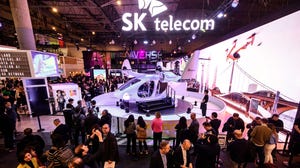Telcos should offer dedicated gaming Internet packages – Ericsson
With cloud gaming yet to fully gain traction with users, telcos could reap benefits by offering dedicated packages, says Ericsson.

With prices of premium gaming gear reaching eye-watering heights, companies like Microsoft and Nvidia have started to offer cloud gaming as an alternative for gamers who don't want to (or can't) splash out on computer gear. Given the stringent speed and latency requirements, the technology seemingly bypasses the need for high-performing hardware via high-performing networks that can offer a smooth gaming experience.
This is an opportunity for telcos, one which Ericsson, in a recent report, says they should seize by offering tailor-made connectivity packages. The vendor argues communications service providers (CSPs) are at a crucial junction when it comes to cloud gaming and shouldn't limit their role to reselling gaming services.
Several companies have done this in recent times. In the US, AT&T partnered with Nvidia last year, offering a free trial of the technology company's cloud gaming platform GeForce NOW to some 5G and fiber customers. In the past, it took a similar step with the now defunct Google Stadia. In the UK, EE is bundling a GeForce NOW subscription with compatible equipment in the UK.
Verizon has gone down a different path and launched its version of Android-based dedicated cloud gaming device Razer Edge. Deutsche Telekom, meanwhile, briefly ran its own cloud gaming platform MagentaGaming before shutting it down in 2022.
Dedicated gaming packages
Ericsson suggests offering different features for different consumer segments. A premium package could prioritize latency and overall gaming quality for heavy gamers, with "enhanced bandwidth during peak gaming hours or prioritized traffic to ensure a seamless gaming experience."
A less costly gaming package that would offer a more basic but still satisfying experience could appeal to less demanding customers, according to the vendor. Telcos could also market smartphones and data packages optimal for cloud gaming. Monitoring the gaming experience is crucial to maintaining good network service, says Ericsson.
AT&T is one example of a telco that has, in the past, investigated offering services specifically targeted at cloud gaming. The idea was to ensure gamers would be guaranteed the quality of connection needed for a smooth experience. As Light Reading's Mike Dano wrote at the time, however, this may fall foul of net neutrality regulations if it means throttling other users' connections.
The principle of net neutrality dictates that Internet service providers (ISPs) refrain from prioritizing one provider's content over a rival's or from throttling that content. It is being reinstated in the US and remains a legal principle in the EU.
Cloud gaming is still not without its hurdles. Google, which ran the cloud gaming platform Stadia, shut it down in 2022, blaming a lack of interest. There have been suggestions, however, that its closure had more to do with Google's business strategy than cloud gaming itself.
Overcoming the gap
In June, Kenichiro Yoshida, the CEO of Sony (a company heavily involved in conventional gaming), said cloud gaming remains technically tricky to pull off in an interview with the Financial Times (paywall applies). He pointed to latency as a particular problem.
Vodafone, too, acknowledges that low broadband speeds have led to a lower-than-expected take-up of cloud gaming. Last year, the company tested the use of a dedicated network slice on a standalone 5G network built by Ericsson as a way to provide a better experience.
And it's not the only challenge holding back online gaming. The required connection speeds and geographical limitations have prompted developer site XDA to declare last year that "cloud gaming isn't worth it in 2023."
An older survey by Ericsson from 2022 suggests 38% of customer satisfaction has to do with network experience, making it the most important driver of gaming experience quality.
Despite having been talked about for years, cloud gaming has not quite yet gained momentum, it seems. Many, however, remain optimistic about the technology's future. In its set of predictions for 2024, Ookla is betting on cloud gaming to bounce back in 2024. It cites Samsung's expected launch of a cloud gaming platform and Netflix's ongoing testing of one as possible drivers of demand.
About the Author(s)
You May Also Like












